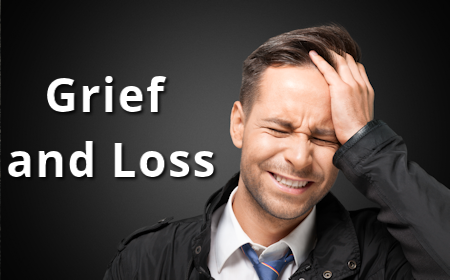 Dealing with loss can be difficult. Loss brings pain – but opens the door to gain. Loss is embedded in the process of living. It happens to everyone and it is inevitable. There is no such thing as constant gain in our lives. Despite our wish to live in the security of abundance and perfect health, we necessarily must lose something. Indeed, time itself will eventually create loss. We come into this world with everything to gain and leave it with everything to lose. And in between we go through a series of gains and losses. Learning to accept both is a sign of wellness, maturity – and even wisdom.
Dealing with loss can be difficult. Loss brings pain – but opens the door to gain. Loss is embedded in the process of living. It happens to everyone and it is inevitable. There is no such thing as constant gain in our lives. Despite our wish to live in the security of abundance and perfect health, we necessarily must lose something. Indeed, time itself will eventually create loss. We come into this world with everything to gain and leave it with everything to lose. And in between we go through a series of gains and losses. Learning to accept both is a sign of wellness, maturity – and even wisdom.
Losses can be catastrophic, such as the death of a partner, parent. child or close friend, or they can be minimal, such as losing a favorite houseplant or finding the first dent in your new car. Obviously, we usually accept minor losses quite well, but major losses can rule our lives for years with feelings of helplessness, confusion and overwhelming sadness. If our losses are not handled adaptively, they can drain us of energy and interfere with our ability to live fully in the present. If we are not able to process our losses and then let them go, we can spend our lives under the spell of old issues and past relationships, living in the past and failing to connect with the experiences of the present.
Some typical lifetime losses include:
- Separation-individuation (infant from parent)
- Sibling rivalry
- Adolescence
- Friends
- Marriage
- Letting go of children
- Losing our parents
- Middle age
- Growing old
Guidelines for Dealing with Loss:
- Don’t try to do it alone
- Submit to the loss in order to get through it
- Realize that intense feelings are normal and expected
- Seek spiritual comfort
- Avoid making long-term decisions
- Take care of your health
Typical Reactions to Loss:
- Denial
- Anger
- Bargaining
- Grieving or Depression
- Acceptance
